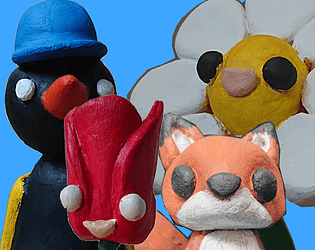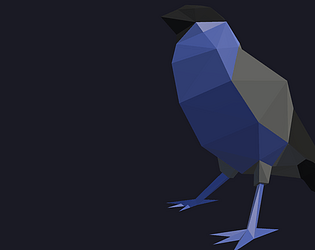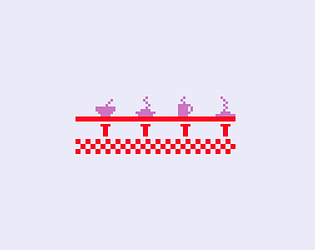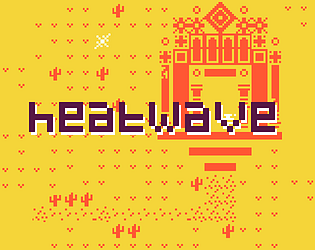Before we dive into the winners of SA GAME JAM 2020, we’d like to say thank you and congratulations to all participants! It’s been a weird year, and being creative has not always come easy. Despite changes to the format of the jam, and not being able to see each other in person, we received 27 fantastic entries.
Thank you for participating, and for helping us keep SA GAME JAM alive.
We’d also like to say thank you to Sithe Ncube, Simon Magwaza and Bahiyya Khan for hosting informative workshops in the runup to the jam. If you missed them, you can access them here.
Finally, a huge thank you to this year’s judges: Kirsten-Lee Naidoo, Dorian Dutrieux, Evan Greenwood, Rodain Joubert, Francois van Niekerk, Jonathan Hau-Yoon and Rohun Ranjith. We appreciate your time and insight.
Now, to the part you’ve been waiting for…
OVERALL
Choosing the overall winner for this year’s jam was difficult. There are a couple of games that stood out for their engaging narrative or gameplay.
In the end, the judges opted for the game that was an all-round strong entry, and that adhered best to the theme. And that game is... TO DIE FOR.
With its quirky humour, cute character portraits and enjoyable writing, To Die For is a fantastic entry to this year’s jam. Endlessly respawning is a trope in video games, but this game draws attention to the trope and instead uses death as a means of furthering the narrative, as opposed to the typical arbitrary reset. To Die For takes a feature that is a narrative weakness of most games and turns it into a strength.
The game had us guessing how we might be tricked into our next encounter, and meeting Death - with all of their charm - became something to look forward to.
Although its controls could sometimes be frustratingly sensitive, its strength in multiple aspects and its creative interpretation of the theme pushed it just far enough to beat out its contenders.
Honourable mentions
Necromedic
Necromedic was a very close second in this category. The clever idea at its core, and its humorous execution made it one of the judges’ favourite games. Despite using asset store art, the art and audio were tastefully integrated.
Necromedic heavily front loads its instructions. And, while that can be a positive feature, the game didn’t quite manage to make the rewards commensurate with the work the player puts in.
The fantasy of having to study is appealing. The game makes you feel like a doctor. But the time limit leads to a lot of failure and the process doesn't feel playful - as the penalty for any mistake is a hard "no", rather than an opportunity for experimentation.
Daria
Daria is a stellar work of art, and the most emotionally powerful of this year's entries. Its strong narrative content pushed it into the forefront of many of our minds. Ultimately, for the overall prize winner, we felt that other entries showed a broader set of skills in game development (art, audio), with Daria picking up awards elsewhere.
Summit
Summit is a well executed, well polished entry into this year’s jam and provided the most enjoyable action gameplay experience of the jam. The gameplay ties in strongly with the theme, and the simple mechanics help to draw attention to the developers interpretation of it.
Unfortunately, the developer is not currently living in SA, which counted against the entry.
HOBBYIST
This year’s winning hobbyist game is HALLUCINATORY MACHINATIONS OF A FRAGILE MIND.
The game is well executed, the experience feels complete, and it offered some exciting surprises. Through its writing, the game evokes strong imagery, and the feeling of a bigger world that exists beyond it.
The judges felt that the developer did a fantastic job of getting the most out of her tools, using Twine to incredible effect. This is no small feat for a hobbyist developer, and the reason why we’re awarding Hallucinatory Machinations Of A Fragile Mind with this prize.
STUDENT
This year’s winning student game is LAST KNIGHT.
The Last Knight has charm, it’s screenshots look tasteful, and the judges were impressed by the fact that the developer ended up with something playable (and fun) despite being quite ambitious with the design.
A lot of student games tend towards coin collection mechanics, and very few make the experience matter to the player, but the Last Knight averts this by integrating coin collecting into its gameplay in a way that ties nicely to the theme - letting the player use coins to increase their safety. It is well scoped, and impressive in terms of its technical achievement.
DIVERSITY
Having a diversity prize is a way for us to celebrate the work of developers from marginalised backgrounds or identities, and to encourage those developers to make more games and tell the stories they want to tell.
This year’s diversity prize winner is DARIA.
While we tackle its narrative content in another category, we feel that this game itself is an excellent illustration of why this category is so important. Daria is a game that very few people would think to make, but more importantly, that very few people could make. The game does not conform to existing video game tropes, but still manages to be both engaging and powerful. We would love to see more games like this being made.
ART
This year’s art winner is RAD WITCH.
While the game felt incomplete in places, its aesthetics stole the show. The judges felt that the approach of painting and scanning game assets was a brave choice considering that most game development tools make this difficult to do.
The compelling look of the game was pushed further with some creative animation: items in the distance would appear with a rotational effect, mimicking foldouts in popup story books. Although there were some assets that didn't quite fit, the direction was strong enough to make it a memorable entry.
Honourable Mentions
Bodge Dall
Bodge Dall is a solid all-round entry. Its pixel art has a nice, limited palette that matches well with its audio, and each of these components were well executed. We would have liked to see more innovation in art direction in order for it to have won in this category.
The Duck's Bills
If we had a prize for the most adorable main character, this The Duck’s Bills would be a shoe in. Its animations were full of personality (especially that jump), and having pixel art textures on 3D assets is an interesting direction. Some elements - like the UI - didn't fit perfectly, but in the end nothing could detract from the joy of the duck walk.
AUDIO
This year’s audio prize winner is THE DUCK’S BILLS.
It’s impressive that all the audio for The Duck’s Bills was made during the jam. There’s consistency across the game’s lovely background music, its ambience and SFX and all of these audio elements are well composed. The audio also supports the cuteness of the titular duck character, and as we noted above, we can’t get enough of it.
NARRATIVE
You might have guessed from descriptions of previous categories, but to confirm...This year’s winner in the narrative category is DARIA.
Daria is a heartfelt game, written in a unique voice that is very well suited to its particular story. The tone remains consistent across the experience, and the writing is incredibly effective in pulling the player into the game world. The judges felt that Daria makes clever use of writing, and that it is made stronger by design choices like limiting player choice and not fleshing out certain aspects of the game.
The judges describe Daria as an exceptional game, one that they’re most likely to recommend to their friends.
Honourable mentions
Thumela
Thumela is a fascinating meditation on purpose, set within an African-themed fantasy world. Thumela's big subversion is turning the chosen-one-destined-to-win-in-a-boss-fight trope on its head. It takes place almost entirely after the protagonist's purpose is complete, asking "What next?". It's a story that makes sense as a text-only game, that is almost all epilogue, and the ground it covers works as a metaphor for an universal experience that is most often left untold. i.e. "What next?"
Thumela cleverly creates a dreamscape by repeating sequences and creating a sort of déjà vu. Unfortunately, a few judges got stuck in its loops and the disorientating narrative encouraged them to believe that getting stuck was the creator's intention.
TECHNICAL EXCELLENCE
We opted not to award the Technical Excellence prize this year, since there were no strong contenders in this category.
Next year’s winner will win double the prize money, or we’ll aim for two winners.
SPECIAL MENTIONS
Bodge Dall
Overall, Bodge Dall was a solid entry. It gave you space to practise the controls before entering a full match. The judges particularly liked how everything fit together, from the pixel art text and animations to the 8-bit audio. What it did, it did very well. But, unfortunately, it also wasn't very innovative, treading a lot of well-trodden ground. It was a great overall package that didn't quite stand out enough in any individual category.
Oh my heart!
This was another entry that was quite strong on multiple fronts. We liked how the game used multiple elements to support its narrative, like colour, audio cues, and some parts of gameplay. While the game's emphasis seemed to be on its narrative, the actual writing felt somewhat cliched. There were enough elements elsewhere in the game with which players could infer the narrative, and allow them space to decode the story, so that leaving out most of the writing would likely have resulted in a more interesting game. Nonetheless, it was an ambitious project by a solo developer that was very polished.






